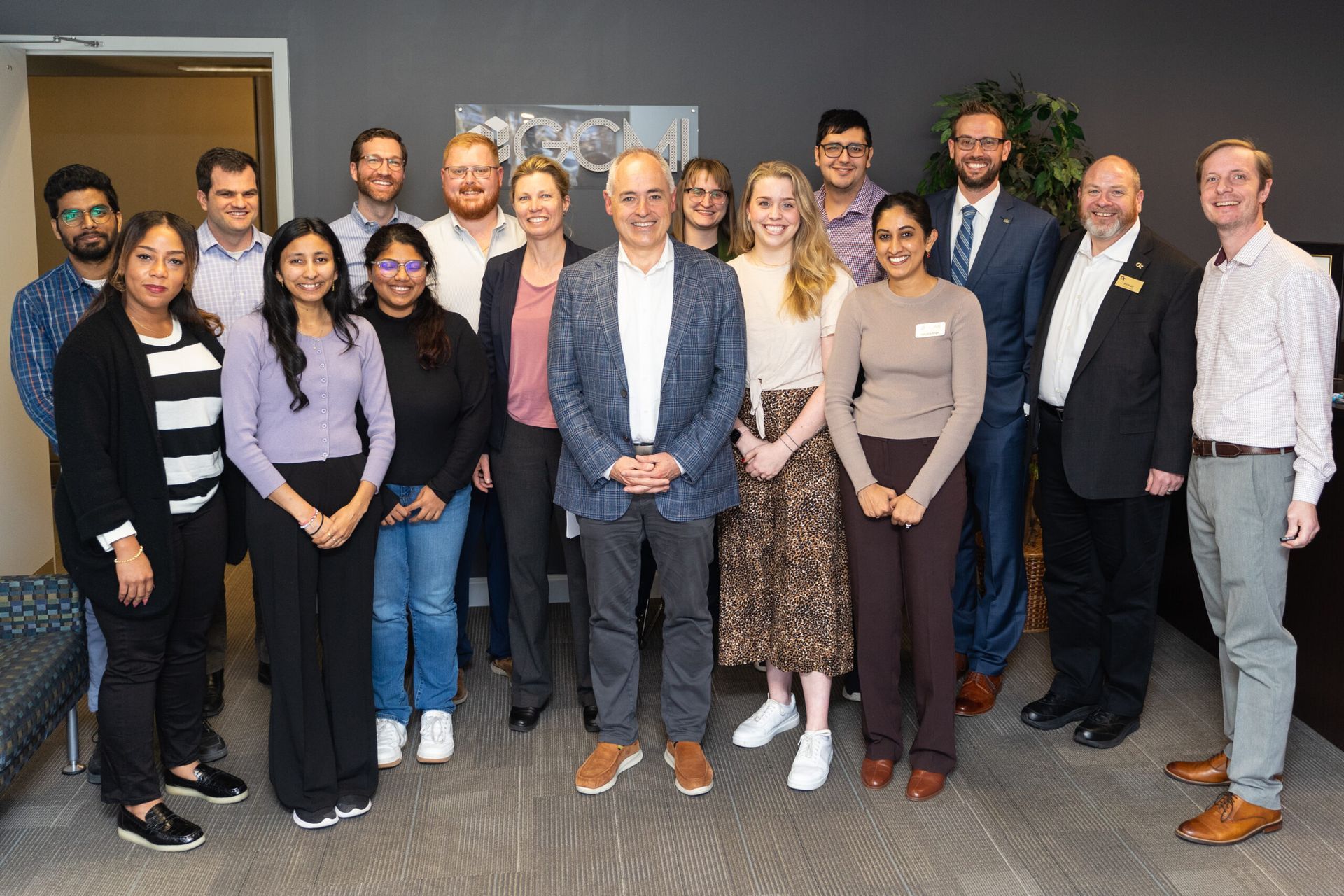CLARIFICATION: GCMI Design and Development was not sold to Veranex
Veranex did not acquire GCMI. They acquired the preclinical testing arm, T3 Labs, only.

Earlier this year, we shared the news that T3 Labs, the preclinical testing arm of GCMI, was sold to Veranex.
Due to a high number of ecosystem colleagues who have asked us directly, we are compelled to again share the following:
Veranex did not acquire GCMI. They acquired the preclinical testing arm, T3 Labs, only.
GCMI has not been “taken private,” as we have heard colleagues state verbatim.
To restate: Veranex did not acquire GCMI.
Indeed, our comprehensive design and development entity is fully intact as an affiliate of Georgia Tech working every day to bring new technologies out of the labs of researchers, faculty and clinicians and into the realm of clinical care to improve patient outcomes, value provision and lives.
“Our mission is to help direct the development, testing, and commercialization of innovative medical devices that improve quality based outcomes and delivery of healthcare for patients,” GCMI Interim Executive Director Saylan Lukas wrote in January. “Helping to produce powerful, positive impacts on patients’ lives involves translating research from the lab to the clinic, including clinical trials, first in human studies and other required activities for FDA approval. We do this in support of Georgia Tech faculty, students and the ecosystem at large, and we do it every single day.
The dedicated team of engineers and medtech product development experts at GCMI works to support innovators from every background in the spectrum: from individual clinicians to researchers, faculty and students in engineering spaces with strong application to new medical technologies, to industry stalwarts and hospitals with high potential centers for medtech innovation like Children’s Philadelphia and Emory / CHOA.
As a Georgia Tech affiliate, we do this from our home base right here in midtown Atlanta a short distance from Science Square. Right here in Atlanta, Georgia, home to the world’s busiest airport, the Centers for Disease Control and Prevention, funding mechanisms and supporters like the Georgia Research Alliance (GRA), dozens of institutions of higher education including the nation’s top ranked biomedical engineering program and world-class hospitals and health systems. Every single attribute of a high performing center for medtech innovation lives here.
Our pathway expertise includes: market analysis, IP landscape & freedom to operate, Design History File (DHF) generation including prototyping, 3D printing, failure mode and effects analysis (FMEA), associated design verification and validation testing, human factors and useability testing, regulatory pathways, requirements and FDA submission data and manufacturing transfer. We are also capable of serving as “manufacturer of record” for first in human use, clinical trials and initial low volume commercialization of novel medical technologies.
You can see the impact and efficacy of our work in the success of innovators making an impact like Scott Hollister, PhD and his live saving pediatric airway technology, Jud Ready, PhD and Hub Hygiene, James Rains and Kamil Makhnejia at Jackson Medical, Omer Inan, PhD and DetectIV and NFANT Labs among scores of others.
If you have not done so, please follow GCMI’s new LinkedIn feed.
In the recent words of two customer colleagues
“Based on deep experience and variety in products supported, GCMI knows the requirements for commercialization across the breadth and depth of new medical technologies from the simplest to the most complex. But they know what’s even more important. They know what a technology needs to be within those requirements to actually be successful in the clinic and in the market.
“We can’t get where we want to go, as efficiently and effectively as we need to get there without GCMI.” – Kamil Makhneija, Founder and CEO, Jackson Medical
“The quicker you ask and answer the most relevant, pressing, potentially costly questions, the more cost efficient your work will be, not to mention preventing headaches and heartache down the road. GCMI does it every day. They are agile, responsive and can often solve problems with minimal input given their expertise and experience. They absolutely accelerated our commercialization pathway.” – Jud Ready, PhD, Founder & CEO, Hub Hygiene
Get in touch & Source: https://gcmiatl.org/2024/06/04/clarification-gcmi-design-and-development-was-not-sold-to-veranex/





